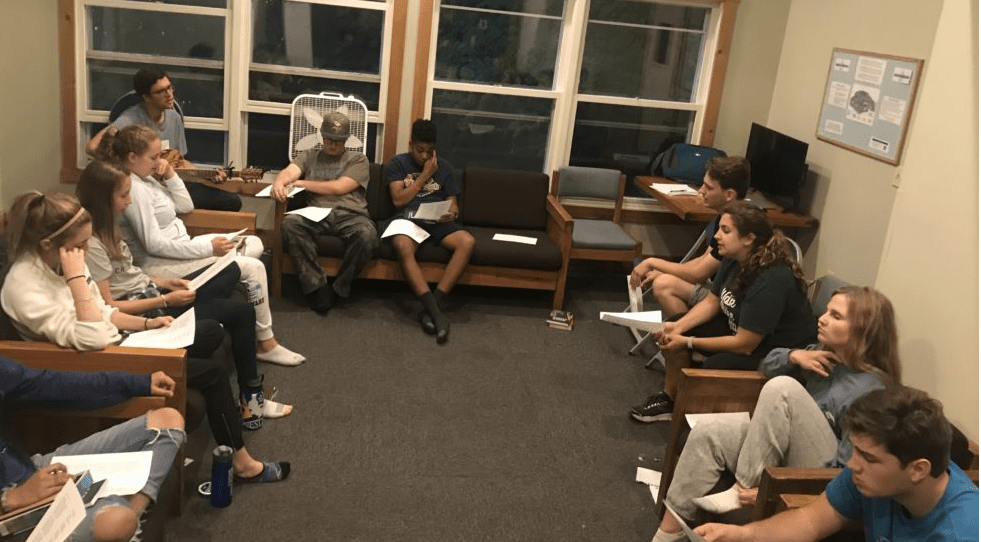 CHICAGO, IL (November 20, 2018) – Bret Widman doesn’t want students in the CRUX discipleship program at North Park University to be too comfortable. Becoming more Christlike requires at least some disruption, he explains.
CHICAGO, IL (November 20, 2018) – Bret Widman doesn’t want students in the CRUX discipleship program at North Park University to be too comfortable. Becoming more Christlike requires at least some disruption, he explains.
The purpose of CRUX is to bring together an intercultural group of freshmen who commit to live, learn, and serve together for the academic year. They live in a campus residence hall, take core classes together, participate in Bible studies, and participate in a local ministry. Each student has a mentor with whom they meet regularly. The students also take part in a Sankofa trip, a several-day bus journey that takes them to sites that played a significant role in the civil rights movement.
“When they’re doing ministry activities in the community, they’re not going there to check off a list,” Widman says. “They’re going there to see how Jesus is at work amid the people they are helping.”
The term CRUX refers to the cross, as well as the heart of an issue or an essential, explains Widman, a Covenant minister who serves as the program director. He previously taught at Western Seminary and served on the board of the Micah ministry at Fuller Theological Seminary where he earned his doctorate.
As a group, the students attend a different type of church each week. The first week they attended a black Pentecostal church where the service opened with people speaking in tongues. The next week they visited a Greek Orthodox church.
“I want to teach them how to go to church and to ask, ‘Can I hear from Jesus when I am uncomfortable or I don’t agree with the theology?’” Widman says.
The program also is about learning to see with neweyes. “When they’re doing ministry activities in the community, they’re not going there to check off a list,” Widman says. “They’re going to see how Jesus is at work amid the people they are helping.”
Widman emphasizes that the discipleship program is built on the Covenant’s Pietist foundation. “Pietism asks, ‘How goes your walk with Jesus?’ and, ‘Where is it written?’ And it asks ‘How can we serve?’” he says.
Widman notes, “The question ‘Where is it written?’ was always meant to be an invitational question, not an inquisitional question. Now we’re going back to reading in community—‘How are you reading this?’ ‘What are you seeing in the text?’”

The program also seeks to help students become better evangelists for the gospel. “We talk about evangelism in a formational way, asking, ‘Are you salt and light?’” Widman says. “We’re not teaching techniques of evangelism. We’re talking about, ‘Are you connected with Jesus?’”
Widman says the group doesn’t live in a “Christian bubble.” They take most but not all of their classes as a cohort. They are encouraged to get involved on campus. Several CRUX students play sports.
Participants say the program isn’t always easy, but it is rewarding. “CRUX pushes the boundaries of what you think you know and exposes you to unfamiliar perspectives pertaining to a multitude of topics,” said current student Torie Shi. “It’s unpredictable.”
Widman attended and taught at Covenant Bible College in Canada, which was a similar program. “It was a transformational experience for me,” he says. “I learned more how to pay attention what Christ was doing in my life.”
He hopes students also will develop a greater understanding of God’s grace as they sort through the issues and experiences in their lives. “A saint is secure in Christ because grace is front-ended,” Widman says. “It’s not just extended at the back end. Whenever we think grace is at the back end, we are on pins and needles because we are afraid to fail.”













